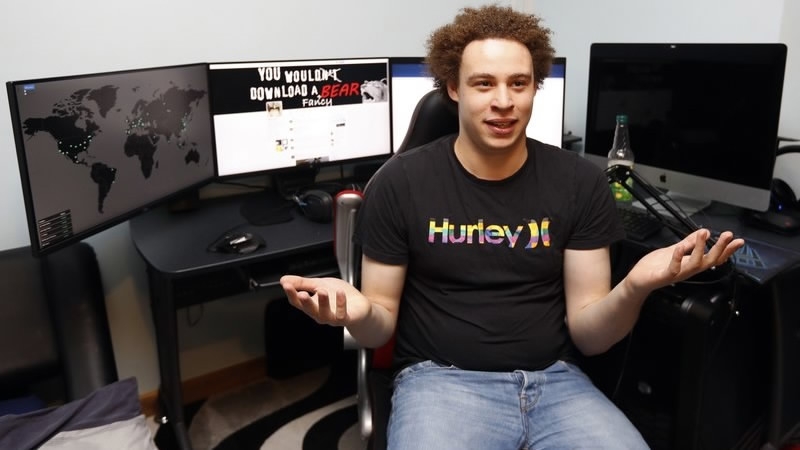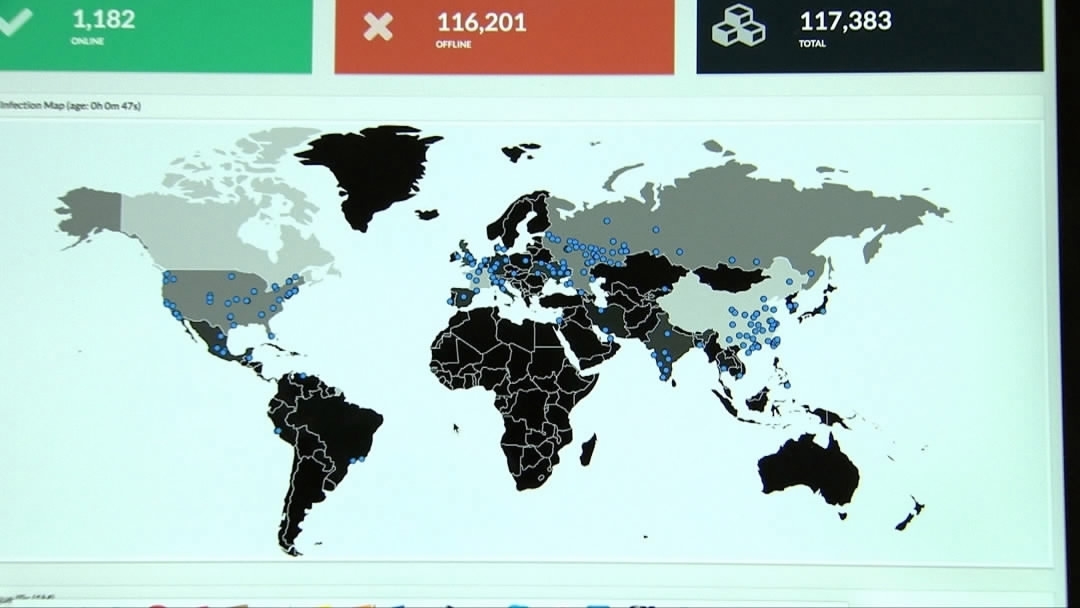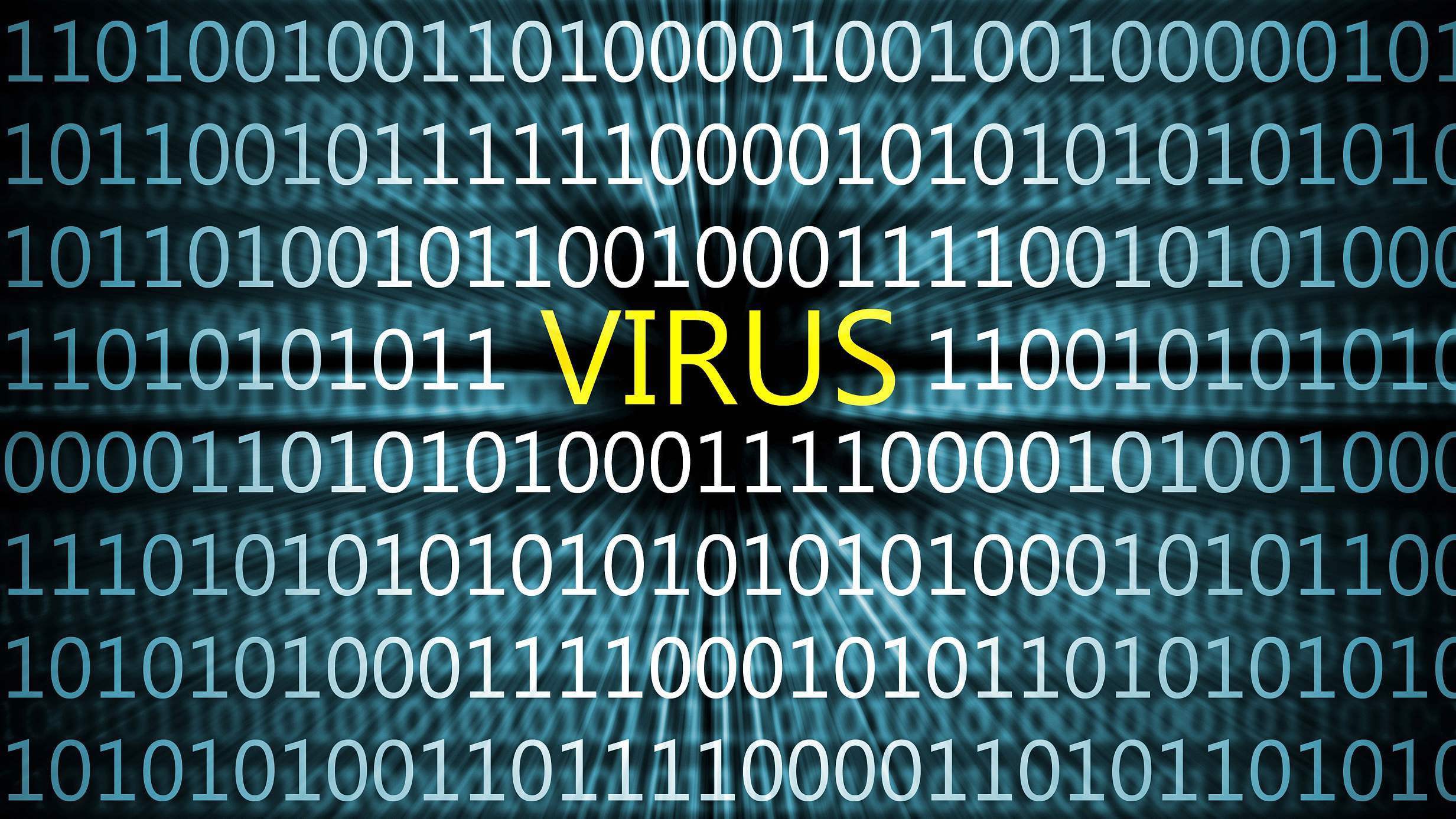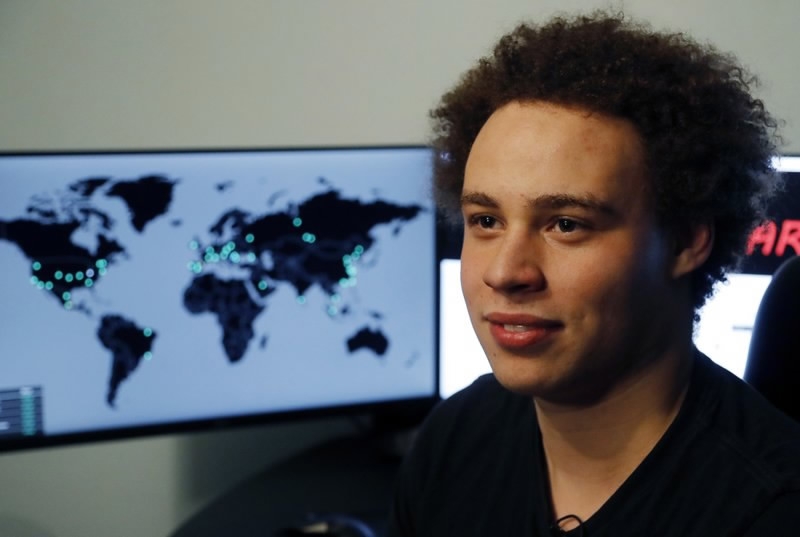
Tech & Sci
18:23, 05-Aug-2017
Judge sets $30K bail for UK researcher in malware case

A Las Vegas federal judge set bail of 30,000 US dollars on Friday for a celebrated young British cybersecurity researcher accused by US prosecutors of creating and distributing malicious software designed to steal banking passwords.
The attorney for Marcus Hutchins, who has broad support in the information-security community, said the 23-year-old hacker would contest the charges. She said he would not be released until Monday because there wasn’t enough time to post bail after Friday’s ruling.

Marcus Hutchins was arrested at an airport in Las Vegas on Wednesday. /AFP Photo
Marcus Hutchins was arrested at an airport in Las Vegas on Wednesday. /AFP Photo
Hutchins is due in federal court in Milwaukee on Tuesday.
The UK resident gained overnight fame with quick thinking in May when he helped curb the spread of the WannaCry ransomware attack that had crippled thousands of computers worldwide.
Much of the cybersecurity community rallied around Hutchins after his arrest Wednesday, calling him a principled, ethical hacker.
The conditions of his release came as a relief for his supporters.
“This is excellent news,” said Nicholas Weaver, a computer scientist at the University of California at Berkeley. “The indictment is remarkably shallow even by indictment standards, which is disappointing because it adds considerable uncertainty and fosters distrust with the general security community.”
Las Vegas-based attorney Adrian Lobo said money for Hutchins’ bond would come from a variety of supporters and family in the US and abroad. The Electronic Frontier Foundation, a digital leading civil liberties non-profit, said it helped arrange Hutchins counsel and was working to find him an attorney to provide “the best possible defense.”
Weaver said federal prosecutors and the FBI were making a mistake by not providing more details about the crimes it alleges Hutchins committed. “Having more information would act to reassure the larger security community,” he said.

Map of locations attacked by WannaCry around the globe, produced by MalwareTech.com. /CGTN Photo
Map of locations attacked by WannaCry around the globe, produced by MalwareTech.com. /CGTN Photo
At the hearing, assistant US attorney Dan Cowhig said Hutchins admitted to authorities in an interview following his arrest that he was the author of the malware code and sold it. He said the government has evidence of chat logs in which Hutchins discussed with an associate the sale of the Kronos banking Trojan.
Magistrate Judge Nancy Koppe said Hutchins is not a danger to the community and has sufficient community support to not be a flight risk.
She ordered him to surrender his passport and said he could fly to Wisconsin, where he was indicted last month, without identification.
“The most recent charge in the indictment is in July of 2015. That’s two years ago that the defendant has been free to roam the world during that period of time,” she said.

Marcus Hutchins is accused of creating and distributing malware known as the Kronos banking Trojan.
Marcus Hutchins is accused of creating and distributing malware known as the Kronos banking Trojan.
Hutchins did not enter a plea at Friday’s hearing. He was arrested while preparing to return home from the Def Con convention for computer security professionals.
He stands accused of creating and distributing malware known as the Kronos banking Trojan. Such malware infects web browsers, then captures usernames and passwords when an unsuspecting user visits a bank or other trusted location, enabling cyber theft.
Computer law expert Tor Ekeland described the evidence in the case so far as flimsy.
“This is a very, very problematic prosecution to my mind, and I think it’s bizarre that the United States government has chosen to prosecute somebody who’s arguably their hero in the WannaCry malware attack and potentially saved lives and thousands, hundreds of thousands, if not millions, of dollars over the sale of alleged malware,” Ekeland said.
The indictment alleges that Hutchins and another defendant, whose name was redacted, conspired between July 2014 and July 2015 to advertise the availability of the Kronos malware on internet forums, sell the malware and profit from it. The indictment also accuses Hutchins of creating the malware.
Programs, however, can often include code written by multiple programmers. Prosecutors might need to prove that Hutchins wrote code that targeted specific institutions.
US Justice Department officials on Friday declined to answer questions about the case. The FBI’s Milwaukee field office, which led the two-year investigation, didn’t return requests for comment.
Ekeland said that what is notable to him from the indictment is that it doesn’t allege any financial loss to any victims or in any way identify them. Besides that, laws covering aspects of computer crime are unclear, often giving prosecutors broad discretion.
“The only money mentioned in this indictment is ... for the sale of the software,” he said.

Marcus Hutchins discovered a so-called “kill switch” that slowed the unprecedented WannaCry outbreak in May. /AP Photo
Marcus Hutchins discovered a so-called “kill switch” that slowed the unprecedented WannaCry outbreak in May. /AP Photo
Jake Williams, a respected cybersecurity researcher, said he found it difficult to believe Hutchins is guilty. The two men have worked together on various projects, including training material for higher education for which the Briton declined payment.
Hutchins' mother Janet, who has been frantically trying to reach her son, said she was “outraged” by the arrest and that it was “hugely unlikely” her son was involved because he spends much of his time combating such attacks.
Back in May, the curly-haired computer whiz and surfing enthusiast discovered a so-called “kill switch” that slowed the unprecedented WannaCry outbreak.
He then spent the next three days fighting the worm that crippled Britain’s hospital network as well as factories, government agencies, banks and other businesses around the world.
Though he had always worked under the moniker of MalwareTech, cracking WannaCry led to the loss of his anonymity and propelled him to cyber stardom. There were appearances and a prize of 10,000 US dollars for cracking WannaCry. He planned to donate the money to charity.
“I don’t think I’m ever going back to the MalwareTech that everyone knew,” he told The Associated Press at the time.
(Source: AP)
10485km

SITEMAP
Copyright © 2018 CGTN. Beijing ICP prepared NO.16065310-3
Copyright © 2018 CGTN. Beijing ICP prepared NO.16065310-3